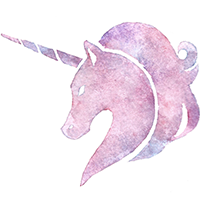
The newest post on the Helping Writers Become Authors website is on a subject that is near and dear to my heart: writer’s block. In “6 Lessons Learned from 4 Years of Writer’s Block” author K.M. Weiland talks about her slow and terrifying trek through the desert of writer’s block.
“I felt bewildered by it, frightened, and often ashamed,” says Weiland, feelings that I am all too familiar with thanks to my own lengthy experience with creative block between 2011 and 2018. Like Weiland, I eventually reached a point where I had to wonder if the “writer” part of my life was just over. Or at least the “aspiring novelist” part, because the whole time I was suffering from writer’s block I was also employed as a writer and/or editor, and putting words on the page every day was how I earned my paycheck.1 Like me, Weiland was writing every day, posting regularly on her blog, earning her living by supporting other writers in their ambitions, while unable to pursue her own.
While my block finally did come to an end, it’s taken me quite a bit of time to recover my skills and feel confident as a writer again, and Weiland’s website has been a big help in that regard. I not only had to learn how to write again, I had to learn how to talk about writing again, and Helping Writers Become Authors has been an invaluable resource to me. I never would have guessed that she was struggling in much the way I had struggled before her — and that’s an important lesson! Creative work draws from a different place than regular work, even if they are using the same skill set, the ability to write well. I never really forgot how to write. I just lost the ability to use it creatively.
I am always so appreciative when an author is upfront about their own struggles with writer’s block. When I was stuck in the abyss and trying to climb out, the most hurtful thing I could hear was “Writer’s block isn’t a real thing.” A declaration that is usually accompanied by the “helpful” advice that if you just put your butt in the chair, hands on the keys, you can push your way through it. You just have to try harder, think differently, soldier on, etc. And while its true that a measure of discipline is important if you want a career as a writer, and that some blocks are rooted in story problems that just have to be figured out, there are other blocks that can’t be solved just by trying harder. Weiland calls that kind of block a “life block,” and it has more to do with mental health than writerly discipline.
My complete creative block, which sapped any ability to write, or take photos, or draw, was a dark time, a true valley of shadow, and it lasted years. I didn’t have new ideas, and efforts to work on my old ideas were stale and forced. I reached the point where I thought that I should just give up on the lifelong idea that I might someday write and publish a novel. Hearing people say that writer’s block didn’t exist, that all I had to do was try harder, was just another kick in the teeth. I wish I could have had someone like Weiland in my corner, assuring me that it was all going to be OK.
Weiland doesn’t offer any quick solutions for getting past writer’s block, and I don’t have any either — because there aren’t any. Every instance of writer’s block is unique, whether it’s a plot block or a life block, and the first step is figuring out where your block is rooted. Then you can start to make a plan to get yourself unblocked. It might take some time. It might take a lot of time. But I promise that the darkness won’t last forever.
Give it time, give yourself grace, find something meaningful to immerse yourself in while your relationship with words is in this fallow period (for me it was crochet — all I had to do was follow a pattern to make something tangible and functional, quite a satisfying hobby!). You may be in the valley for a few weeks, a few months, a few years, but the road will rise before you again.
